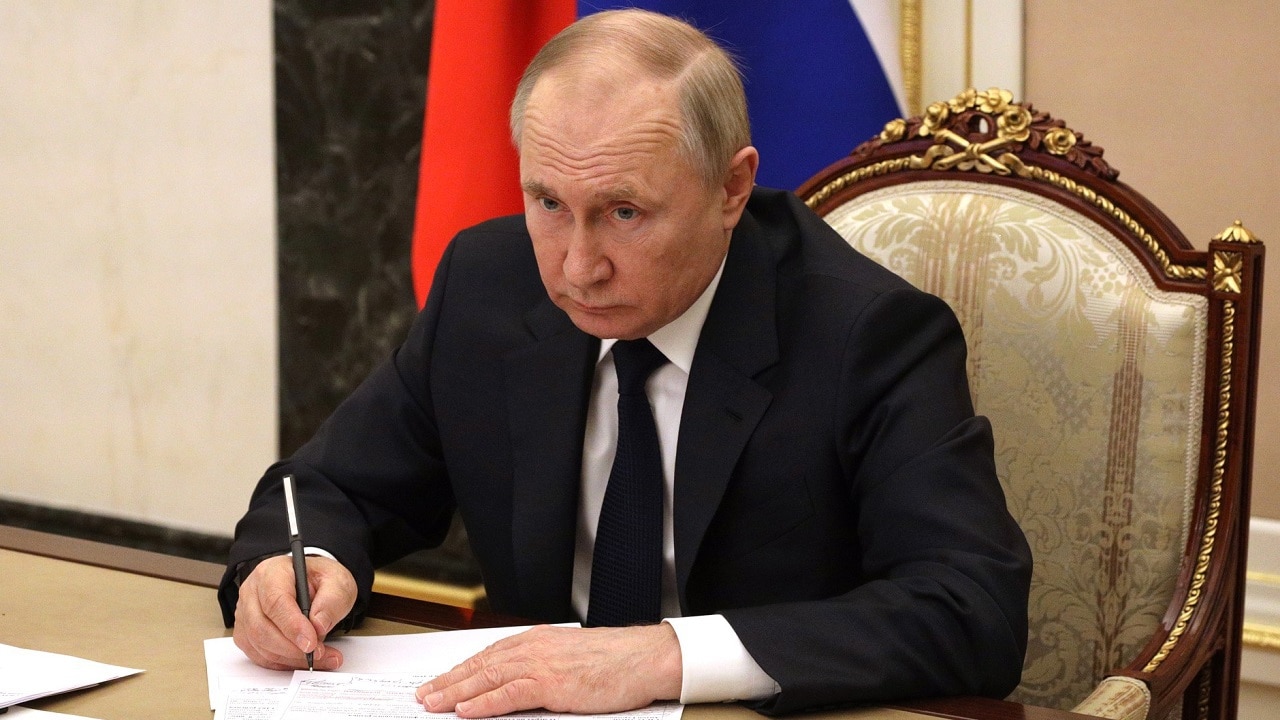Reading Putin at Zhirinovsky’s Wake – The unabashed Russian fascist, Vladimir Zhirinovsky, died on March 25, after an encounter with COVID-19. Zhirinovsky’s corpse was laid out in the ornate Hall of Columns in Moscow’s House of Unions, a historical landmark from the late 18th century.
Liberals cheered, hoping that Zhirinovsky’s demise would set off a chain reaction among other Russian reactionaries. Fascists mourned the departure of a fellow extremist and war-monger.
But the real significance of his death and its aftermath lies elsewhere.
For starters, the Hall of Columns has traditionally been reserved for Russia’s great leaders: Lenin, Stalin, Brezhnev, Andropov, and Chernenko. A variety of Russian military leaders and Communist Party functionaries—as well as the notorious Feliks Dzerzhinsky, the founder of the bloodthirsty KGB’s bloodthirsty predecessor, the Cheka—also passed through the Hall on their way to eternity.
In displaying Zhirinovsky in the same Hall as these luminaries, Vladimir Putin was sending an obvious message to the world—namely, that he, Putin, supported Zhirinovsky and his maniacal dreams of reestablishing a Russian empire with extreme violence. It’s worth providing a few classic Zhirinovsky quotes in order to get a full picture of the man’s looniness.
Back in 2014, Zhirinovsky said the following: “The Baltic States, Poland – they are doomed. They will be swept away. Nothing will remain there. They should sober up, the leaders of these dwarf nations, [and see] how they are exposing themselves. Sure, America is safe, nothing will happen to it, it’s far away, while Eastern European countries are exposing themselves to, shall I say, the danger of complete annihilation.”
On his more sober days, Zhirinovsky endorsed Saddam Hussein as a democrat, proposed using tactical weapons against the Chechens, expected that one day Russian soldiers would “wash their boots in the warm waters of the Indian Ocean,” and said that former U.S. National Security Advisor and Secretary of State Condoleezza Rice was a “a black whore who needs a good c–k. Send her here, one of our divisions will make her happy in the barracks one night. She will choke on Russian sperm as it will be leaking out of her ears … until she crawls to the US embassy in Moscow on her knees.”
Since Putin said, after Zhirinovsky’s death, that he “always, in any audience, in the most heated discussions, … defended the patriotic position — the interests of Russia,” it follows that Zhirinovsky’s outrageously extreme “patriotic” positions were not distasteful to the Russian president.
In fact, Putin’s appearance at the wake testifies to his implicit endorsement of Zhirinovsky’s crazy brand of patriotism. Putin’s recent statements about Ukraine being run by Nazis and drug addicts are explicit evidence of the continuity of his views with those of Zhirinovsky.
Most striking about the wake is the absence of the usual dignitaries standing on both sides of the coffin. This has been standard Russian practice since the days of Lenin. Putin’s fear of COVID clearly trumped any considerations of ritual. At the same time, the emptiness of the huge hall only served to emphasize the closeness of the two men: it was as if Zhirinovsky was Putin’s best friend and Putin wanted to be one on one with him one last time.
The body language is worth noting. Putin (his face bloated, a double chin prominently displayed in the close-ups, and a visibly heavier torso straining against the jacket) strides up to the coffin, places a bouquet of red roses at its foot, places one hand on the coffin, crosses himself, bows, and then walks away.
The homage is complete. A great man has passed away, and his acolyte has paid his respects. All that was lacking was for Putin to have kneeled before the corpse and said, “Zhirinovsky is dead. Long live Zhirinovsky!”
As indeed he will, as long as Putin remains Russia’s dictator.
Dr. Alexander Motyl is a professor of political science at Rutgers-Newark. A specialist on Ukraine, Russia, and the USSR, and on nationalism, revolutions, empires, and theory, he is the author of 10 books of nonfiction, including Pidsumky imperii (2009); Puti imperii (2004); Imperial Ends: The Decay, Collapse, and Revival of Empires (2001); Revolutions, Nations, Empires: Conceptual Limits and Theoretical Possibilities (1999); Dilemmas of Independence: Ukraine after Totalitarianism (1993); and The Turn to the Right: The Ideological Origins and Development of Ukrainian Nationalism, 1919–1929 (1980); the editor of 15 volumes, including The Encyclopedia of Nationalism (2000) and The Holodomor Reader (2012); and a contributor of dozens of articles to academic and policy journals, newspaper op-ed pages, and magazines. He also has a weekly blog, “Ukraine’s Orange Blues.”

